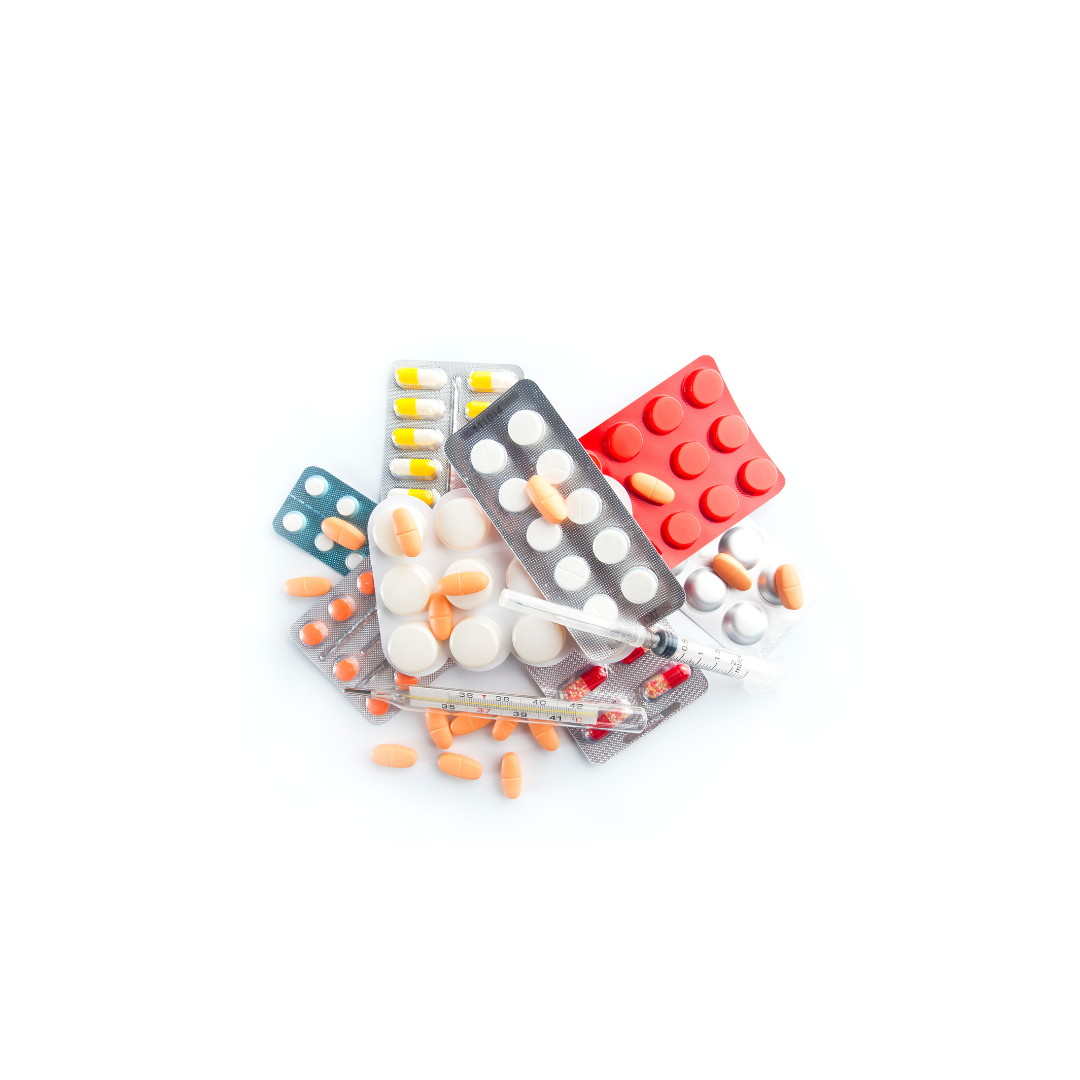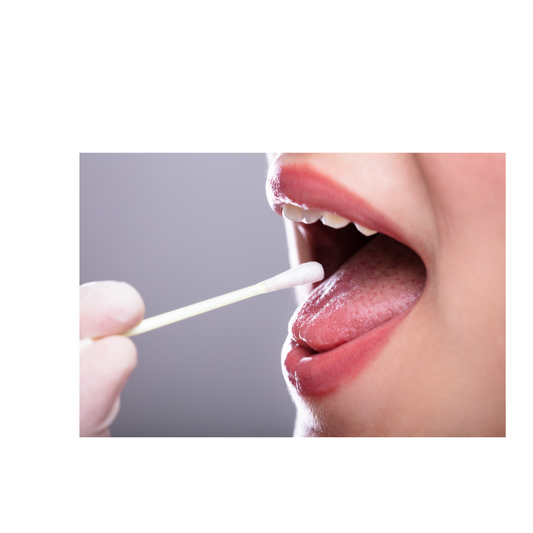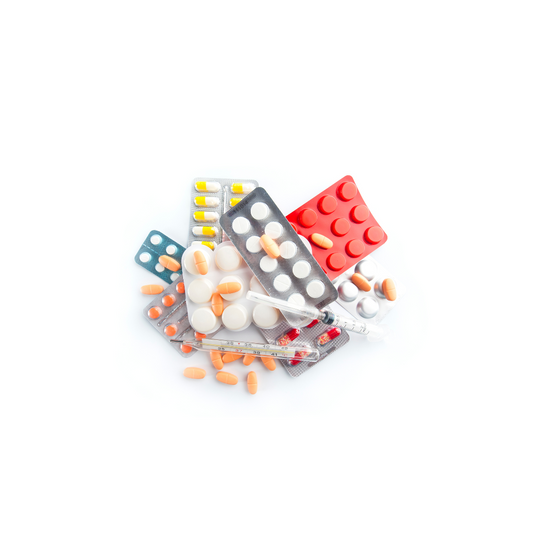Welcome to another insightful post on our Essential Insights blog. I'm Dr. Shane Cope, DDS, MSD, the founder of Essential Health Ventures, where we're dedicated to improving oral health through natural and effective solutions. Today, we're tackling an issue that affects a significant portion of the population yet often goes under-discussed: medication-induced dry mouth, also known as xerostomia.
Dry mouth, or xerostomia, is more than just an occasional nuisance; it's a condition that can lead to discomfort, difficulty eating and speaking, and an increased risk of oral health issues such as tooth decay and gum disease. While there are various causes of dry mouth, one of the most common yet overlooked sources is the side effects of medications.
It's important to understand that medication-induced dry mouth is a prevalent issue, particularly in an era where polypharmacy — the use of multiple medications by a single patient, often to manage a variety of chronic conditions — is on the rise. Studies suggest that polypharmacy is becoming increasingly common, especially among the elderly population, with significant implications for oral health due to the side effects of many commonly prescribed drugs.
In this article, we'll delve into the specifics of how certain medications can lead to dry mouth and explore strategies to counteract these effects. Whether you're dealing with dry mouth yourself or caring for someone who is, understanding the link between medications and oral dryness is the first step towards managing this uncomfortable condition effectively. Stay tuned as we explore the prevalence of medication-induced dry mouth and provide you with the knowledge and tools to alleviate its impact on your life.
The Science Behind Dry Mouth
Dry mouth, or xerostomia, is characterized by a noticeable decrease in saliva production, leading to a dry and often uncomfortable sensation in the mouth. Understanding why dry mouth occurs requires a dive into saliva's crucial role in our oral health and the factors that can disrupt its normal production.
Saliva is far more than just water in our mouths; it's a complex mixture of enzymes, electrolytes, and antibodies that play a pivotal role in digesting food, protecting teeth from decay, preventing infection, and even facilitating taste. It acts as a natural cleanser, constantly washing away food particles and neutralizing acids produced by bacteria in the mouth, thereby protecting the enamel on your teeth.
Several factors can contribute to dry mouth, but at its core, xerostomia occurs when the salivary glands in the mouth don't produce enough saliva to keep the mouth wet. This can be due to a variety of reasons, including dehydration, certain medical conditions like Sjögren's Syndrome, radiation therapy affecting the salivary gland, and, notably, the side effects of a wide range of medications.
According to a review published in the Journal of the American Dental Association, more than 400 commonly prescribed medications, including antihypertensives, antidepressants, antihistamines, and diuretics, have been identified to have xerostomia as a potential side effect. These medications can interfere with the normal functioning of the salivary glands, reducing saliva output and leading to the symptoms associated with dry mouth.
The implications of reduced saliva production extend beyond mere discomfort. Saliva's protective functions are vital for maintaining oral health; without it, individuals are at a higher risk of developing dental caries, gum disease, and oral infections. Moreover, saliva aids in the digestion process and enhances our ability to taste, meaning that dry mouth can also impact nutrition and enjoyment of food.
In summary, the science behind dry mouth reveals its significant impact on oral health and underscores the importance of understanding the causes behind reduced saliva production. As we continue to explore the relationship between medication use and dry mouth, it becomes clear that managing this condition is crucial for maintaining oral health and overall well-being.
Medications That Can Cause Dry Mouth
An astonishingly high number of both prescription and over-the-counter medications list dry mouth as a known side effect, with estimates suggesting that more than 700 such medications can potentially affect saliva production. This wide-ranging list includes many commonly used drug classes, underscoring the prevalence of medication-induced dry mouth as an issue of significant concern.
Among the medications most frequently associated with dry mouth are antihistamines, often used to manage allergies; antidepressants, part of the treatment regimen for various mental health conditions; and medications for blood pressure management. Each of these drug types interferes with saliva production through different mechanisms, primarily by acting on the body's nervous system to inhibit the signals that normally stimulate the salivary glands to produce saliva.
Antihistamines, for instance, work by blocking histamine receptors to reduce allergy symptoms, but this action also tends to reduce saliva secretion, leading to dry mouth. Similarly, many antidepressants affect neurotransmitter levels in the brain, which can inadvertently reduce the stimulation of salivary glands. Blood pressure medications, particularly diuretics, decrease fluid levels in the body, which can also reduce saliva production.
The issue of dry mouth becomes even more pronounced in individuals taking multiple medications simultaneously, a condition known as polypharmacy. As each medication contributes its own side effect of reduced saliva production, the cumulative effect can significantly exacerbate the severity of dry mouth. This is particularly relevant in older adults, who are more likely to be prescribed multiple medications to manage various health conditions.
A comprehensive review published in the Journal of the American Geriatrics Society highlights the compounded risk of dry mouth among patients engaged in polypharmacy, emphasizing the need for healthcare providers to carefully consider the potential side effects of prescribed medications. The review suggests that clinicians should be vigilant in monitoring for signs of dry mouth and other related complications, especially in patients taking multiple medications known to affect saliva production.
In conclusion, the vast array of medications capable of inducing dry mouth underscores the complexity of managing this condition, particularly for those subject to polypharmacy. Understanding the specific medications that contribute to dry mouth and the mechanisms behind their effects is crucial for mitigating this uncomfortable and potentially harmful side effect.
The Impact of Medication-Induced Dry Mouth
The repercussions of medication-induced dry mouth extend far beyond the mere discomfort of a parched mouth. The absence of adequate saliva production has profound implications for oral health, leading to a cascade of potential problems that can significantly compromise both dental well-being and overall quality of life.
Oral Health Complications
Saliva plays a pivotal role in oral health, acting as a natural cleanser that neutralizes acids produced by bacteria, washes away food particles, and provides disease-fighting substances throughout the mouth. Its reduction can lead to several oral health issues:
- Tooth Decay and Gum Disease: Without saliva's protective effects, the risk of tooth decay and gum disease escalates. Saliva's absence allows plaque to form more readily on teeth and along the gum line, leading to cavities and periodontal disease.
- Mouth Infections and Oral Dysbiosis: A dry oral environment disrupts the natural balance of microorganisms in the mouth, potentially leading to overgrowths of harmful bacteria or fungi, such as candidiasis. This imbalance, or oral dysbiosis, further exacerbates the risk of infections and mouth ulcers.
- Mucositis and Ill-Fitting Denture Prostheses: For patients undergoing treatments like chemotherapy, which can cause mucositis (inflammation of the mucous membranes in the mouth), dry mouth intensifies discomfort and healing challenges. Additionally, reduced saliva can affect the fit and comfort of dentures, leading to sore spots and difficulties in wearing them.
A study published in the Journal of Dental Research highlights the direct correlation between reduced saliva flow and increased incidence of cavities and periodontal disease, emphasizing the critical protective role saliva plays in oral health.
Quality of Life and Comfort
Beyond the direct oral health implications, medication-induced dry mouth significantly impacts individuals' overall quality of life:
- Eating and Speaking Difficulties: A lack of saliva makes chewing and swallowing food challenging, potentially leading to poor nutrition and weight loss. Speaking may also become difficult, affecting social interactions and professional communication.
- Social Isolation and Bad Breath: The discomfort and self-consciousness about bad breath or the fear of food getting stuck due to insufficient saliva can lead to avoidance of social situations, contributing to feelings of isolation and depression.
- Overall Discomfort: The persistent sensation of dryness and the associated symptoms can be a constant source of discomfort, disrupting sleep and daily activities.
Research in the Oral Diseases journal elucidates how dry mouth significantly diminishes life quality, linking it to difficulties in daily functions, decreased social participation, and heightened levels of anxiety and depression.
Medication-induced dry mouth is not merely an inconvenience but a condition with far-reaching implications for oral health and overall well-being. The complex interplay between dry mouth and its effects on oral health, comfort, and quality of life underscores the necessity for awareness, early identification, and comprehensive management strategies to mitigate its impact.
Strategies for Managing Medication-Induced Dry Mouth
Effectively managing medication-induced dry mouth is pivotal for mitigating its impact on oral health and overall quality of life. While it may not always be possible to cease the use of medications that contribute to dry mouth, there are several strategies that can help alleviate its symptoms and reduce the risk of associated oral health complications.
Hydration: The Foundation of Relief
Staying well-hydrated is the cornerstone of managing dry mouth. Regular intake of water throughout the day helps keep the mouth moist and compensates for decreased saliva production. Drinking water not only provides immediate relief from dryness but also aids in washing away food particles and bacteria, reducing the risk of tooth decay and gum disease. The American Dental Association recommends sipping water or rinsing the mouth with water after meals to enhance oral cleanliness and moisture.
Saliva Substitutes and Specialized Mouthwashes
For those seeking additional relief, saliva substitutes and mouthwashes specifically designed for dry mouth can offer significant benefits. These products often contain ingredients that mimic the lubricating properties of saliva, providing a soothing, moisturizing effect. Many also contain xylitol, which has been shown to stimulate saliva production and inhibit the growth of decay-causing bacteria. A systematic review published in the Journal of Oral Rehabilitation highlights the efficacy of saliva substitutes and xylitol-containing products in improving dry mouth symptoms and overall oral health. Essential’s Dry Mouth Spray is an all-natural option that has been specifically formulated to provide relief from the symptoms of dry mouth.
Chewing Sugar-Free Gum and Sucking on Sugar-Free Candies
Another simple yet effective strategy is the use of sugar-free gum or candies to stimulate saliva flow. Chewing or sucking on these products encourages the salivary glands to produce more saliva, naturally moistening the mouth. The act of chewing also promotes oral health by strengthening the muscles of mastication and increasing the clearance of food debris. According to a study in the International Journal of Dental Hygiene, regular chewing of sugar-free gum is associated with increased saliva production and reduced symptoms of dry mouth.
Incorporating these strategies into daily routines can help individuals manage the discomfort of medication-induced dry mouth and protect against its long-term effects on oral health. It's essential, however, to consult with a healthcare provider or dentist to tailor management approaches to individual needs and conditions, especially when considering the use of over-the-counter products like saliva substitutes.
Lifestyle and Dietary Adjustments for Managing Medication-Induced Dry Mouth
Effectively managing medication-induced dry mouth extends beyond using products designed to alleviate symptoms. Lifestyle and dietary adjustments are crucial in minimizing discomfort and promoting saliva production. Making informed choices about what to eat and drink can significantly impact the severity of dry mouth symptoms.
Foods and Drinks to Avoid
Certain foods and beverages can exacerbate dry mouth symptoms and should be consumed in moderation or avoided. These include:
- Caffeinated beverages: Coffee, tea, and some sodas can contribute to dehydration, worsening dry mouth symptoms. A study published in the Journal of Public Health highlights the diuretic effect of caffeine, which can lead to decreased saliva production.
- Alcoholic drinks: Alcohol consumption can lead to dehydration and reduced saliva flow. According to the *Oral Health Foundation*, alcohol's dehydrating effect on the body extends to the oral cavity, exacerbating dry mouth.
- Salty and spicy foods: These can irritate dry oral tissues, leading to discomfort. A review in the International Journal of Molecular Sciences discusses how these foods can trigger pain and further reduce saliva production in individuals already suffering from dry mouth.
- Acidic foods and beverages: Citrus fruits, tomatoes, and carbonated soft drinks can aggravate dry mouth symptoms and contribute to tooth enamel erosion. The acidity can be particularly harsh on a dry oral environment, as noted in research within the Journal of the American Dental Association.
Beneficial Foods and Habits
Incorporating foods that promote saliva production and adopting certain habits can help manage dry mouth effectively:
- High-water-content fruits and vegetables: Foods like cucumbers, celery, watermelon, and strawberries can help keep the mouth moist and provide essential hydration, as detailed in nutritional guidelines by the American Dietetic Association.
- Chewing sugar-free gum: As mentioned earlier, this stimulates saliva flow. Opting for gum containing xylitol can also help protect against tooth decay.
- Staying hydrated: Drinking plenty of water throughout the day is paramount. Setting a reminder to sip water regularly can ensure continuous hydration and saliva production.
- Breathing through the nose: Mouth breathing can exacerbate dry mouth. Mindful practices to encourage nasal breathing can help maintain oral moisture levels.
- Humidifying your living space: Using a humidifier, especially during dry seasons or in air-conditioned environments, can help add moisture to the air and alleviate the symptoms of dry mouth.
Adopting these lifestyle and dietary adjustments can significantly reduce the discomfort associated with medication-induced dry mouth and contribute to better oral health. However, it's essential to consult with healthcare professionals before making significant changes, especially for individuals with specific dietary needs or restrictions. Integrating these strategies with a comprehensive approach to oral care can offer relief and improve the quality of life for those affected by dry mouth.
Lifestyle and Dietary Adjustments for Managing Medication-Induced Dry Mouth
Effectively managing medication-induced dry mouth extends beyond using products designed to alleviate symptoms. Lifestyle and dietary adjustments are crucial in minimizing discomfort and promoting saliva production. Making informed choices about what to eat and drink can significantly impact the severity of dry mouth symptoms.
Foods and Drinks to Avoid
Certain foods and beverages can exacerbate dry mouth symptoms and should be consumed in moderation or avoided. These include:
- Caffeinated beverages: Coffee, tea, and some sodas can contribute to dehydration, worsening dry mouth symptoms. A study published in the Journal of Public Health highlights the diuretic effect of caffeine, which can lead to decreased saliva production.
- Alcoholic drinks: Alcohol consumption can lead to dehydration and reduced saliva flow. According to the Oral Health Foundation, alcohol's dehydrating effect on the body extends to the oral cavity, exacerbating dry mouth.
- Salty and spicy foods: These can irritate dry oral tissues, leading to discomfort. A review in the International Journal of Molecular Sciences discusses how these foods can trigger pain and further reduce saliva production in individuals already suffering from dry mouth.
- Acidic foods and beverages: Citrus fruits, tomatoes, and carbonated soft drinks can aggravate dry mouth symptoms and contribute to tooth enamel erosion. The acidity can be particularly harsh on a dry oral environment, as noted in research within the Journal of the American Dental Association.
Beneficial Foods and Habits
Incorporating foods that promote saliva production and adopting certain habits can help manage dry mouth effectively:
- High-water-content fruits and vegetables: Foods like cucumbers, celery, watermelon, and strawberries can help keep the mouth moist and provide essential hydration, as detailed in nutritional guidelines by the American Dietetic Association.
- Chewing sugar-free gum: As mentioned earlier, this stimulates saliva flow. Opting for gum containing xylitol can also help protect against tooth decay.
- Staying hydrated: Drinking plenty of water throughout the day is paramount. Setting a reminder to sip water regularly can ensure continuous hydration and saliva production.
- Breathing through the nose: Mouth breathing can exacerbate dry mouth. Mindful practices to encourage nasal breathing can help maintain oral moisture levels.
- Humidifying your living space: Using a humidifier, especially during dry seasons or in air-conditioned environments, can help add moisture to the air and alleviate the symptoms of dry mouth.
Adopting these lifestyle and dietary adjustments can significantly reduce the discomfort associated with medication-induced dry mouth and contribute to better oral health. However, it's important to consult with healthcare professionals before making significant changes, especially for individuals with specific dietary needs or restrictions. Integrating these strategies with a comprehensive approach to oral care can offer relief and improve the quality of life for those affected by dry mouth.
Conclusion: Navigating Medication-Induced Dry Mouth with Proactive Management
As we've explored throughout this article, medication-induced dry mouth is more than a mere inconvenience; it's a condition that can significantly impact oral health and overall quality of life. The correlation between certain medications and the reduction in saliva production necessitates a thoughtful approach to management and treatment. Understanding the underlying causes, recognizing the potential for oral health complications, and taking proactive steps to mitigate these effects are essential for anyone experiencing dry mouth as a side effect of their medication regimen.
The strategies outlined, from staying well-hydrated to incorporating saliva substitutes and making lifestyle and dietary adjustments, serve as a foundation for managing symptoms. Moreover, embracing holistic and natural remedies can offer additional support, provided these approaches are chosen wisely and in consultation with healthcare professionals.
Addressing medication-induced dry mouth is not a one-size-fits-all solution; it requires a personalized approach that considers each individual's unique circumstances and needs. Therefore, it's crucial for those affected to consult with their healthcare providers, including dentists and physicians, to explore different management strategies. These professionals can offer tailored advice, recommend specific treatments, and provide guidance on integrating various remedies into a comprehensive care plan.
In conclusion, while medication-induced dry mouth presents its challenges, it's a condition that can be managed effectively with the right strategies and support. I encourage readers to take proactive steps in managing their symptoms and engage in open dialogue with their healthcare teams. Together, you can improve your oral health and, by extension, your overall well-being.
Join the Conversation and Discover Effective Solutions
Connect with Our Community
Are you navigating the challenges of dry mouth and seeking support and insights? We invite you to join our vibrant Facebook group, a space where you can share your experiences and learn from others dealing with similar issues. It's a community where knowledge, tips, and personal stories about managing dry mouth are exchanged freely. Don't navigate this journey alone; become part of a supportive network that understands your struggles.
Explore More Resources
We also encourage you to delve into our wide range of resources and articles dedicated to effective oral health management. Our website is a treasure trove of information, offering guidance, tips, and the latest findings in oral health care. Whether you're looking for in-depth articles, practical advice, or the latest trends in oral health, our resources are here to enlighten and guide you.
Try Essential's All-Natural Dry Mouth Solutions
And if you're looking for a gentle yet effective way to combat dry mouth, explore our selection of all-natural products. Essential's Dry Mouth Spray, formulated with the goodness of nature, is designed to provide you with the relief you need without the harsh chemicals. It's more than just a product; it's a step towards a healthier, more comfortable daily life. Experience the difference that natural ingredients can make in managing dry mouth.
Your journey to better oral health starts here. Join our community, explore our resources, and try Essential's Dry Mouth Spray. Together, let's find the solutions that work best for you. Visit us now and take the first step towards a more comfortable and healthier smile. 🌿🦷





